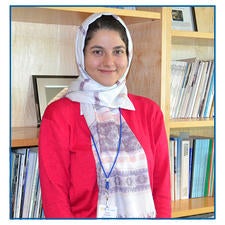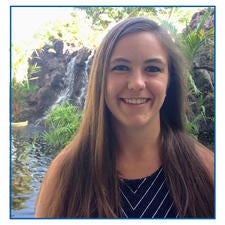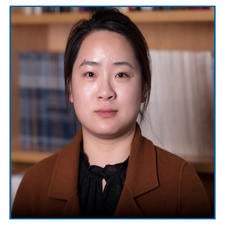CE-CERT Announces 2020-2021 National Center for Sustainable Transportation Fellowship and Dissertation Award Recipients
CE-CERT is honored to announce the 2020-2021 awardees of National Center for Sustainable Transportation Fellowship and Dissertation awards. Four graduate students were awarded $20,000 each, to support their research in sustainable transportation.
The National Center for Sustainable Transportation (NCST) provides national leadership in advancing environmentally sustainable transportation through cutting-edge research, direct policy engagement, and education of our future leaders. NCST is one of seven national centers funded by the U.S. Department of Transportation’s University Transportation Centers (UTC) Program, and the only national center focused on the Fixing America’s Surface Transportation (FAST) Act research priority area of Preserving the Environment. The Institute of Transportation Studies at the University of California, Davis (ITS-Davis) leads the NCST in partnership with California State University, Long Beach; the University of California, Riverside; the University of Southern California; Georgia Institute of Technology; and the University of Vermont.
Sahar Ghadimi, Chemical & Environmental Engineering
NCST Graduate Fellowship
Sahar is currently investigating the combined impact of fuel type and aftertreatment strategies, and driving mode on primary and secondary emissions from heavy-duty vehicles. This study will provide an array of knowledge on primary and secondary aerosol formation from HVDs which results in controlling emissions, policy making, and provide quantitative emission data for public health. This study is essential for sustainability in transportation, and further alteration in energy resources such as migration from fossil-based energy to renewable energy. In addition, the results from this research will also be used for improvement in efficiency of fuels, engines, and aftertreatments. This award will also help enhance Sahar's chance to pursue her future career in academia.
Ayla Moretti, Chemical & Environmental Engineering
NCST Dissertation Award
This award will enable Ayla to perform her research, both modeling and experimental in sustainable transportation. The experimental data collected will assist in creating two modules that can be applied to emission simulators to help bridge the gap between predicted and measured near-road PM2.5 from vehicle emissions. This research is critical in understanding how vehicle emissions interact with the ambient air, immediately after being emitted, which can greatly improve our understanding of how vehicle emissions affect human health, air quality, and the environment. This funding will also allow further work on research through collaboration and sharing in conferences and workshops.
Priyanka Singh, Chemical & Environmental Engineering
NCST Graduate Fellowship
Priyanka’s current project involves the use of Co-solvent Enhanced Lignocellulosic Fractionation (CELF) pretreatment of cellulosic biomass which produces a stream that is rich in hemicellulose sugars and lignin, an aromatic polymer, and leaves solids containing mostly broken-down cellulose or glucan that can then be fermented down streams. Lignocellulosic biomass is a renewable resource with the potential to significantly reduce dependence on petroleum for production of fuels and chemicals which is a major push for sustainable transportation. She is developing processes to maximize total sugar release from hemicellulose and cellulose and CELF lignin by identifying process conditions (time, temperature, loadings) from switchgrass and poplar wood for biological conversion into biofuels and bioproducts. The NCST award will also allow Priyanka to continue to build her skill set to work on global societal issues in the future.




